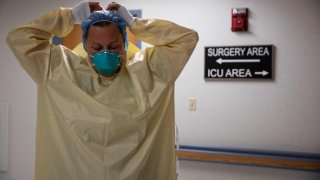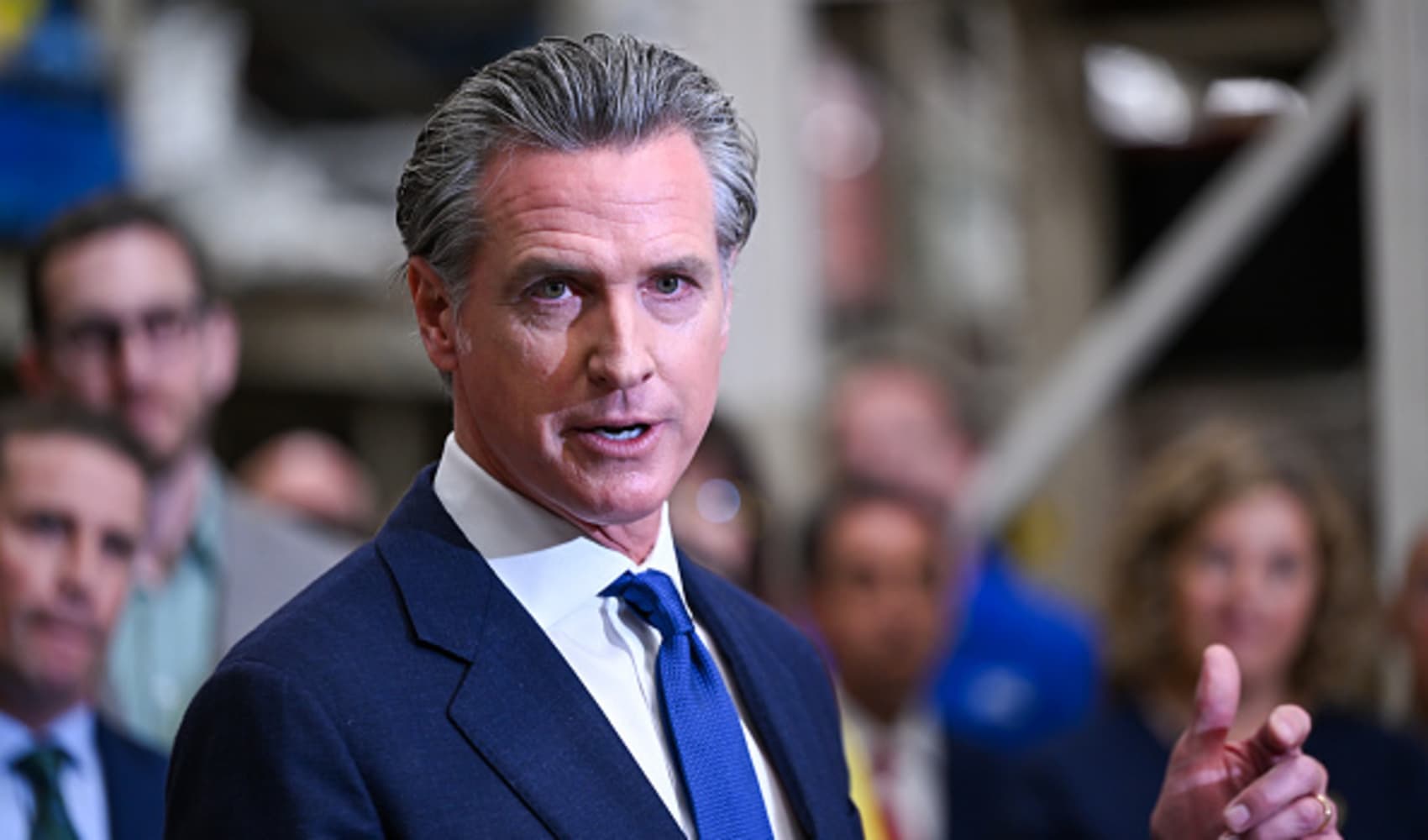
- The Ohio Department of Health warned Wednesday that many hospitals in Ohio are "at, or reaching, peak capacity" as the latest coronavirus surge grips the Midwestern state.
- Ohio Gov. Mike DeWine a day earlier warned of a "startling" rise in Covid hospitalizations among young people.
- A lack of staffing is complicating the latest rise in Covid hospitalizations, according to Holzer Health System CEO Dr. Michael Canady.
COLUMBUS — The Ohio Department of Health warned Wednesday that many hospitals in Ohio are "at, or reaching, peak capacity" as the latest coronavirus surge hits the Midwestern state.
The spike in Covid-19 hospitalizations "is causing major issues in our state. The overwhelming majority of those in hospitals are unvaccinated," the health department said on Twitter.
Get top local stories in DFW delivered to you every morning. Sign up for NBC DFW's News Headlines newsletter.
The warning comes a day after Republican Ohio Gov. Mike DeWine flagged a "startling" rise in hospitalizations in the state among younger people during the delta variant-driven infection increase.
"Throughout this pandemic, even in the worst of times, we were not seeing this many younger people under 50 going into our hospitals," DeWine, 74, said in a press conference Tuesday. "The clear difference among these younger Ohioans and older Ohioans is rate of vaccination."
The governor said just 35% of the state's residents age 39 and younger are vaccinated, while 73% of the "more vulnerable" people ages 40 and up are vaccinated. Ohio's vaccination rate lags the U.S. overall, with roughly 58% of Ohioans ages 12 and up fully immunized, according to the state department of health. Nationally, that figure is 64%, according to the Centers for Disease Control and Prevention.
Money Report
Covid hospitalizations have been trending upward in Ohio in recent weeks. The seven-day average of patients with confirmed or suspected Covid in Ohio hospitals is 4,017, nearly double where it was one month ago, according to a CNBC analysis of data compiled by the Department of Health & Human Services. It is below Ohio's peak in mid-December, when the weekly average was 5,652, according to CNBC's analysis.
Across Ohio, roughly 79% of hospital beds are in use as of Tuesday, although the majority are non-Covid patients, according to the Ohio Department of Health. About 80% of the intensive care unit beds in Ohio are currently in use. Covid patients are taking up about 22% of all ICU beds, according to the state health department.
That's high compared with the national average of Covid patients in ICU rooms, which stands at under 13%, according to the Department of Health and Human Services.
About 97% of Covid-related hospitalizations in Ohio are among unvaccinated people, DeWine said. "We know what the problem is. The problem is the delta variant. It's dangerous. It's driving our surge, and the solution is not very complicated. ... Our solution is to have more people vaccinated," DeWine said.
Lack of staffing is one issue complicating the latest spike in Covid hospitalizations, according to Dr. Michael Canady, who is CEO of Holzer Health System, which is based in southeastern Ohio near the West Virginia border.
"I'm afraid that if someone comes in with a medical problem or a surgical problem that we would normally be able to take care of, that we won't have the ability to do that simply from staffing and beds," Canady said in a video tweeted by the Ohio Department of Health.
"Now, we have physical beds, but we are so short staffed right now from nurses who have burned out, left, gone to nursing agencies, traveling agencies that are paying up to $10,000 a week to draw our nurses away," Canady said. "It's very challenging. I've been in health care over 40 years, and I've never felt so helpless."
— CNBC's Nate Rattner contributed to this report.






